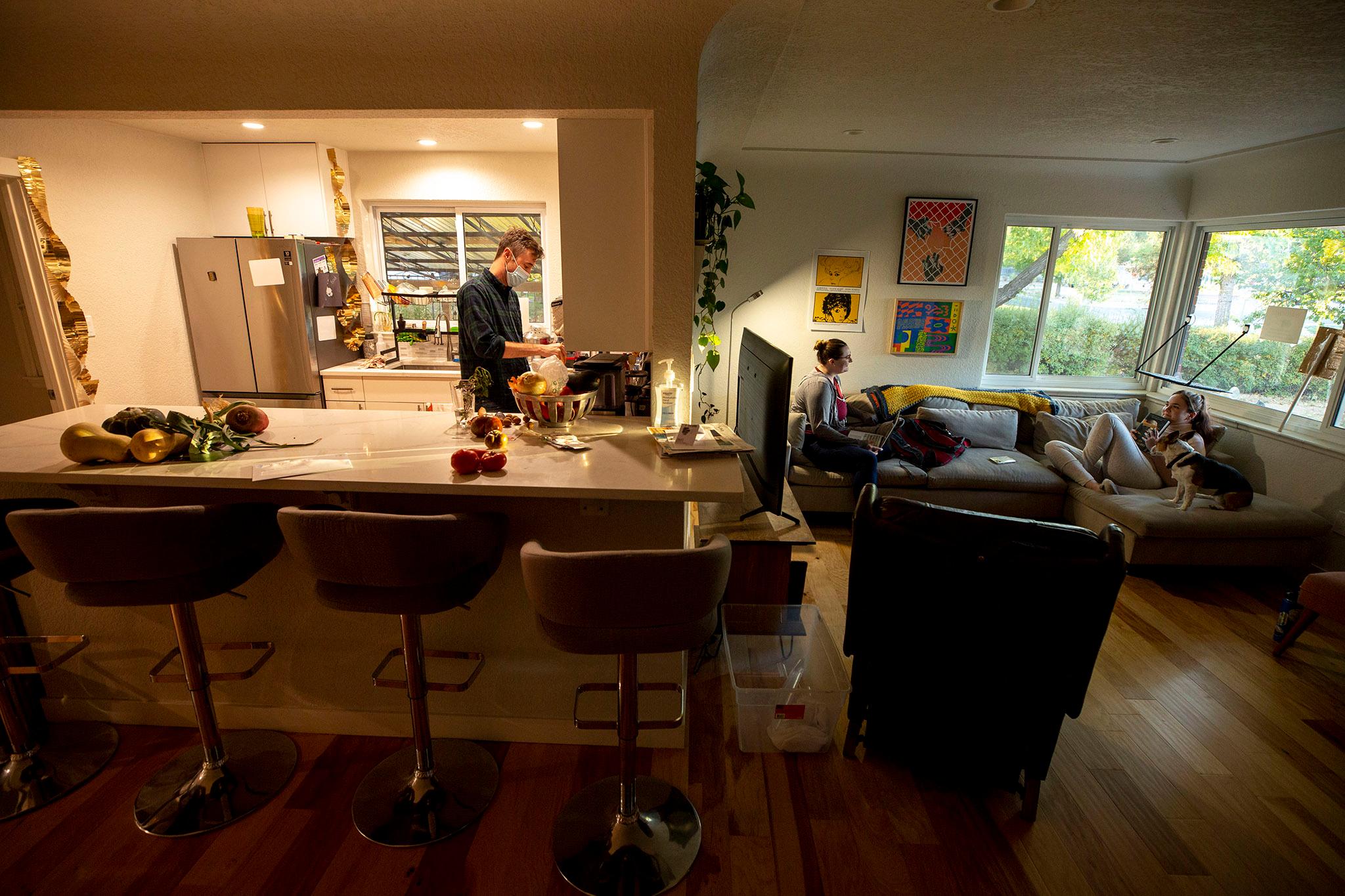Kyle Huelsman and Jack Teter met at work in 2015. They became friends, moved in with a bunch of other friends in 2016, and lived together in a nine-bedroom home built in 1902 in the Speer neighborhood. Everyone had their own room, but they shared the common spaces and split the over $4,000 rent based on each roommates' income.
"It's a big ol' house," Teter said. "It never got carved up. Having three-plus roommates living in a house is so normal. Sometimes people have lots of roommates for reasons of affordability and sometimes people have lots of roommates because they genuinely enjoy living together. Why would that be a problem?"
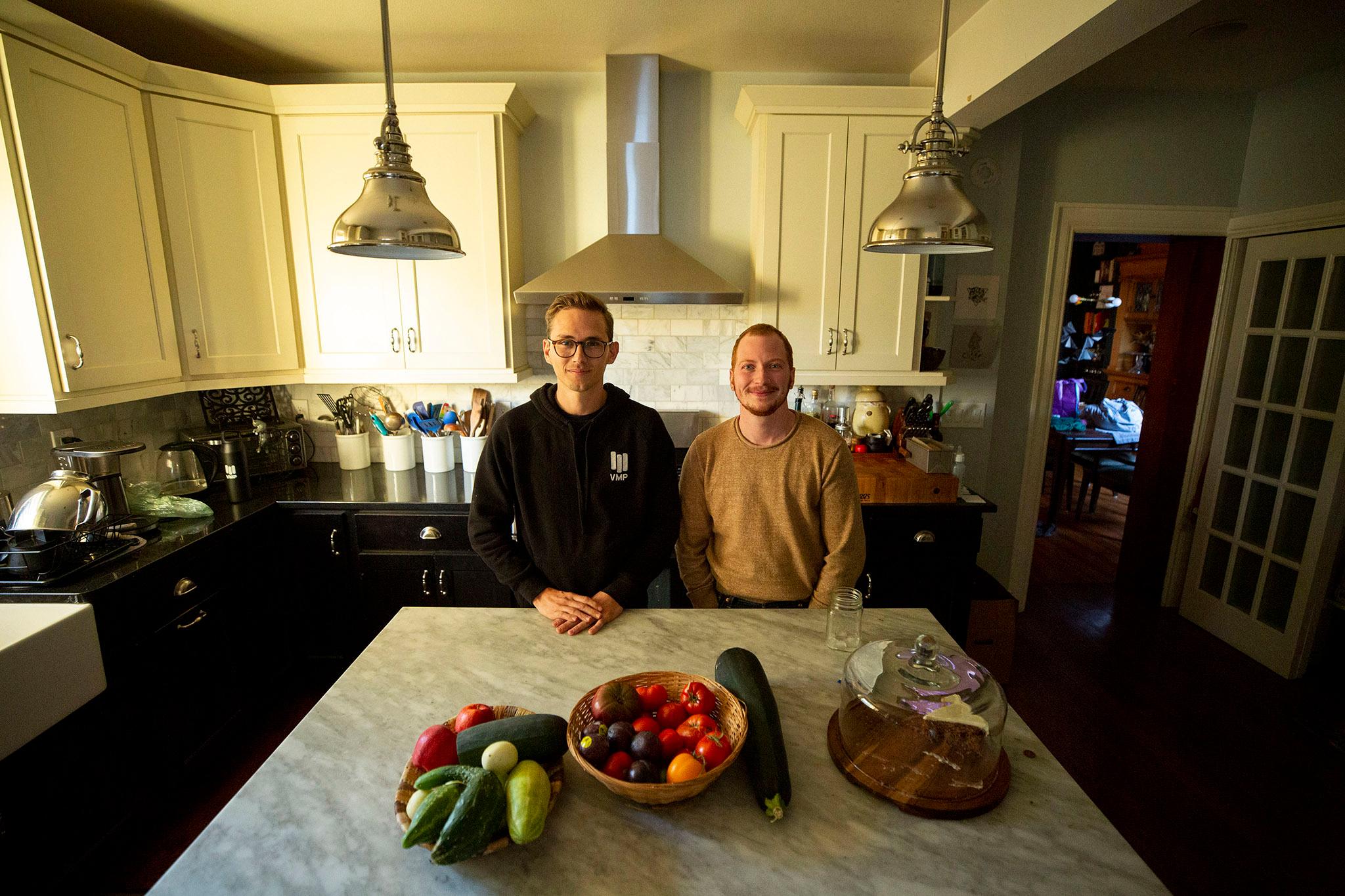
But it was a problem. An illegal problem, according to Denver zoning code at the time.
Prior to February 2021, more than two unrelated adults could not live together in a single-family home, though a third adult could be added via a permit and a small fee.
"Most people don't know that it is, or was, illegal to have three adults live together in a nine-bedroom, 4,000-square foot home," Teter said. "I don't think anyone would logically assume that. Everyone has their own bedroom. There's plenty of bathrooms. Probably, more than half of the rentals in Denver are illegal, according to the policy."
Teter said he and his other housemates were aware of the law, but life continued, as did rent price increases across Denver.
In 2018, Teter and Huelsman purchased the home from their landlord and decided to live together and eventually raise their prospective families together.
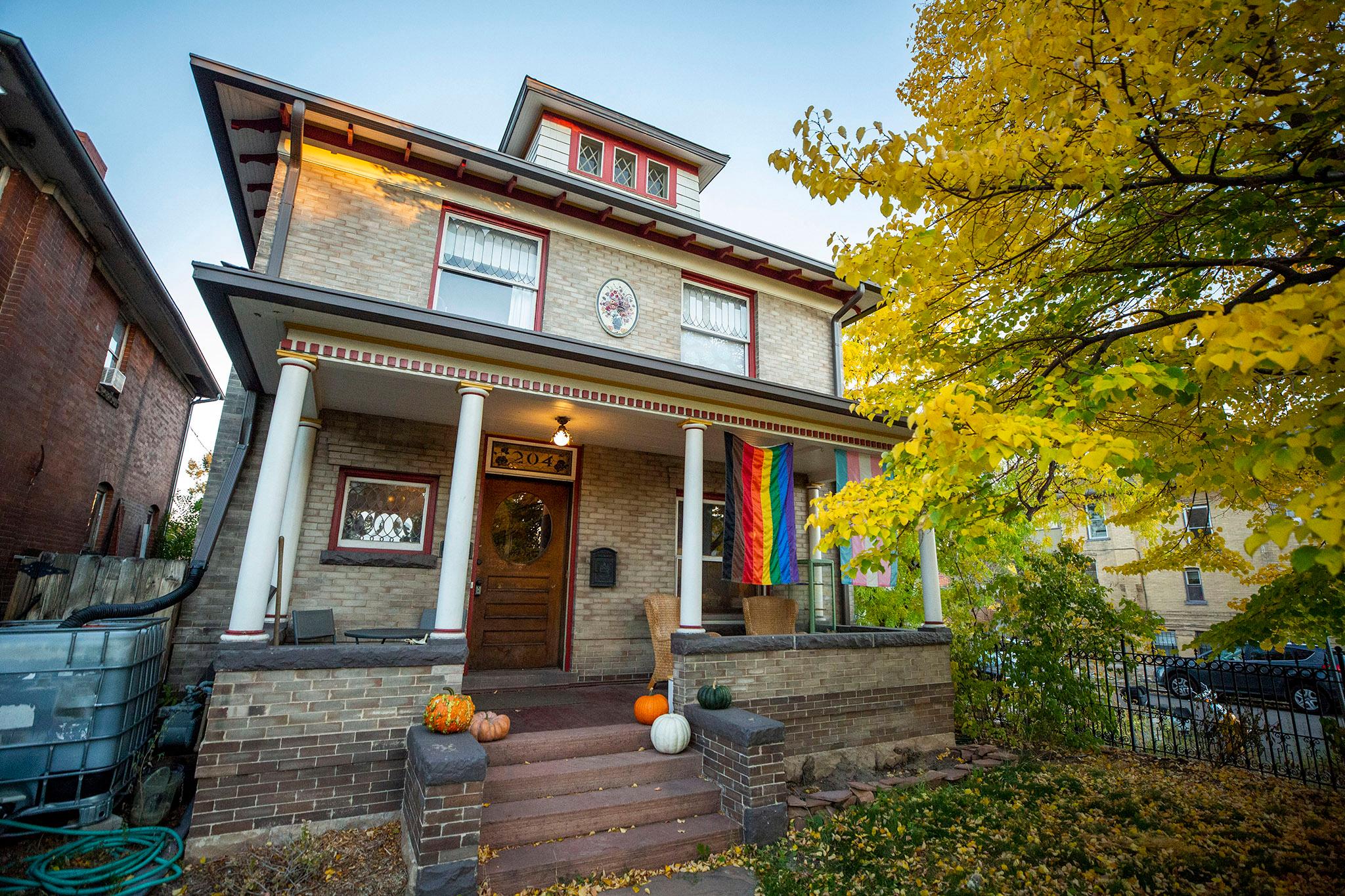
"Our mortgage is $1,000 less than our rent was," Teter said. "Our long-term plan has always been to stay in the house together and raise our families together. So we were really stoked when the City Council passed the Group Living Amendment because it meant that our house was no longer illegal."
Teter is referring to the 2020 Group Living Text Amendment, which council passed 11-2 in February. It's an update to the zoning code, which now allows up to five unrelated adults to legally live together in a single-family home. The change put Denver on par with other cities on the Front Range, including Lakewood and Longmont. Five is also the limit in similar cities, such as Kansas City and Phoenix.
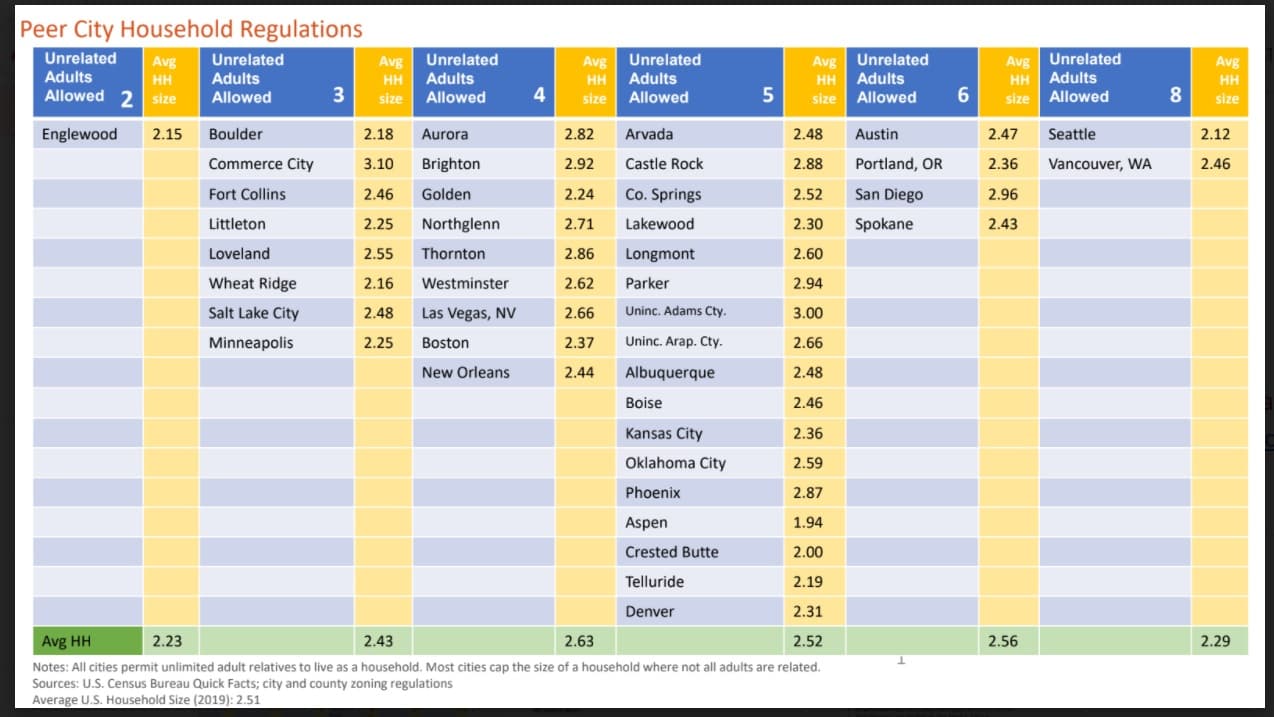
The update also made it easier to build residential care facilities, such as halfway houses, sober-living residences and homeless shelters, in more areas of Denver, whereas previous facilities were zoned for industrial areas on the fringes of minority communities. The change, however, does not allow for these facilities to be built in residential areas where only single-family, duplex and row house homes are built.
The change was a three year-long process of research, revisions and public discussions. The ordinance was repeatedly tinkered with to address community concerns, such as parking limitations (one per adult and one extra) and spacing restrictions between residential care facilities, which are limited per neighborhood.
Community Planning and Development said the goal of the change was to "address the housing needs of all Denverites" and "to reframe how we look at all group living."
Including group living arrangements like what Huelsman and Teter have and what Paul Bindel has with Queen City Cooperative, a co-op that provides affordable housing to its members. The co-op owns two properties and houses about 10 people.

"There are many people who live as we do," Bindel said. "And there are others who just take a roommate on or others that are doubling up. They absolutely should have a city zoning code that represents them and not tries to cookie cutter everyone into two-family or two-person homes."
Fast forward to today and Huelsman and Teter are doing exactly as they planned in 2018. They still live together, legally, along with their spouses, Kathleen Moloney and Dani Bee, respectively. Huelsman and Moloney added a bouncing baby to the mix, who is now three months old.
However, things may change. Again.
"Now our house is probably going to become illegal again," Teter said.
Huelsman added, "It wouldn't work. No one between the four of us could pay for the house on our own. I don't know what would happen if the city told us we could not continue legally living together anymore."
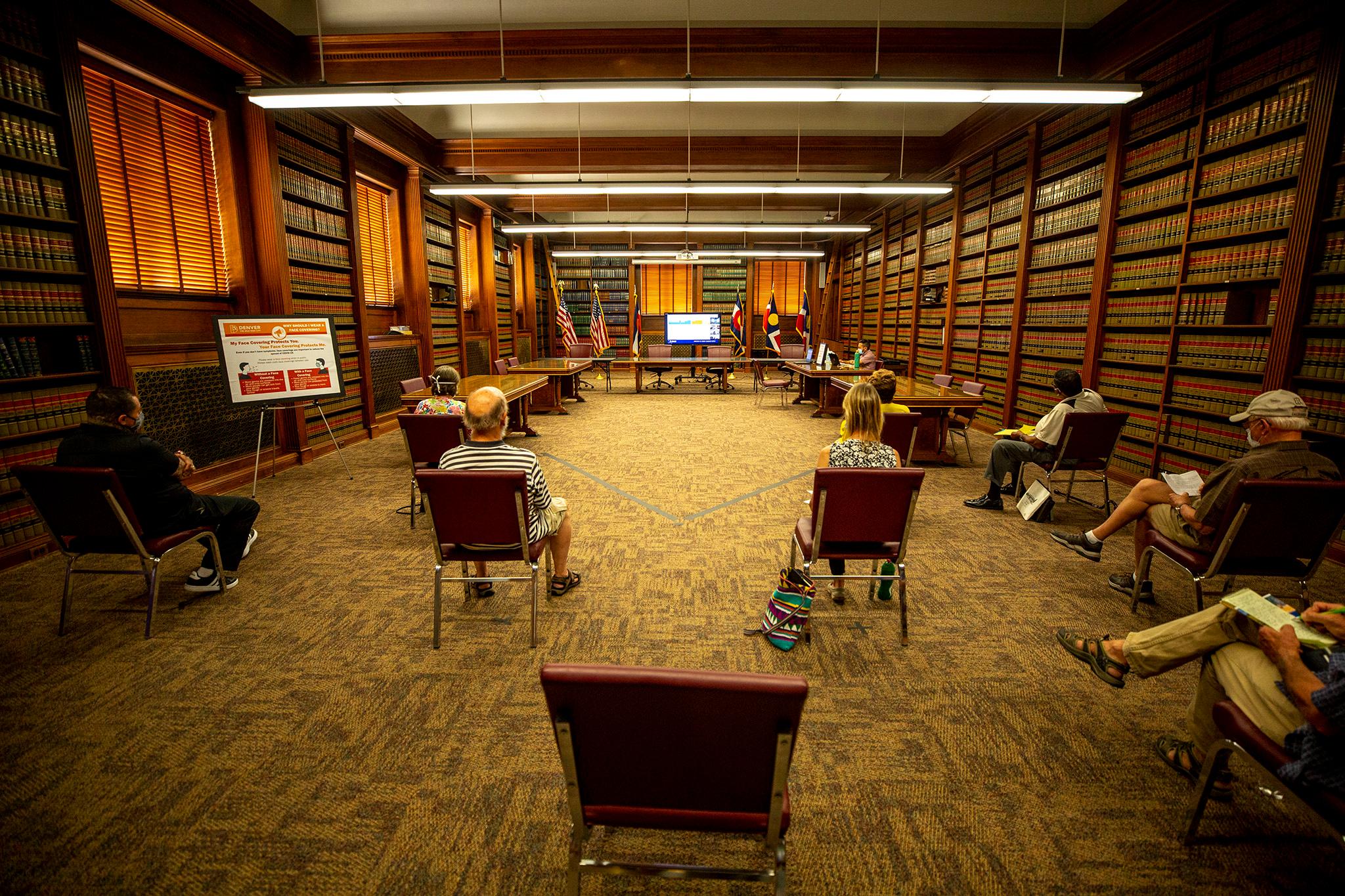
The regulations on group living arrangements and residential care facility placements may revert back to the old Denver zoning code on Nov. 2, when Denverites will decide whether they want to repeal or keep the zoning code amendment when they consider Referred Question 2F (Safe and Sound) on their ballots.
Although Huelsman and Teter legally own their home and both of their names are on the deed, if 2F passes, their spouses -- two additional people beyond what would be allowed -- would make the space illegal (children don't count).
"I think the language is incredibly confusing," Teter said. "I've never seen Blue Book language as misleading as the stuff on 2F. Any reasonable person reading the Blue Book would think that a 'yes' vote keeps five unrelated people as opposed to reverting back to two."
Let's break it down. A "yes" vote on 2F would make it illegal, again, for three or more unrelated adults to live together in a single-family home. Stricter zoning limitations on residential care facility placements would return, as well. A "no" vote would keep the Group Living Amendment in place, meaning five unrelated adults could remain in a single-family home and there would be less restrictions on care facilities.
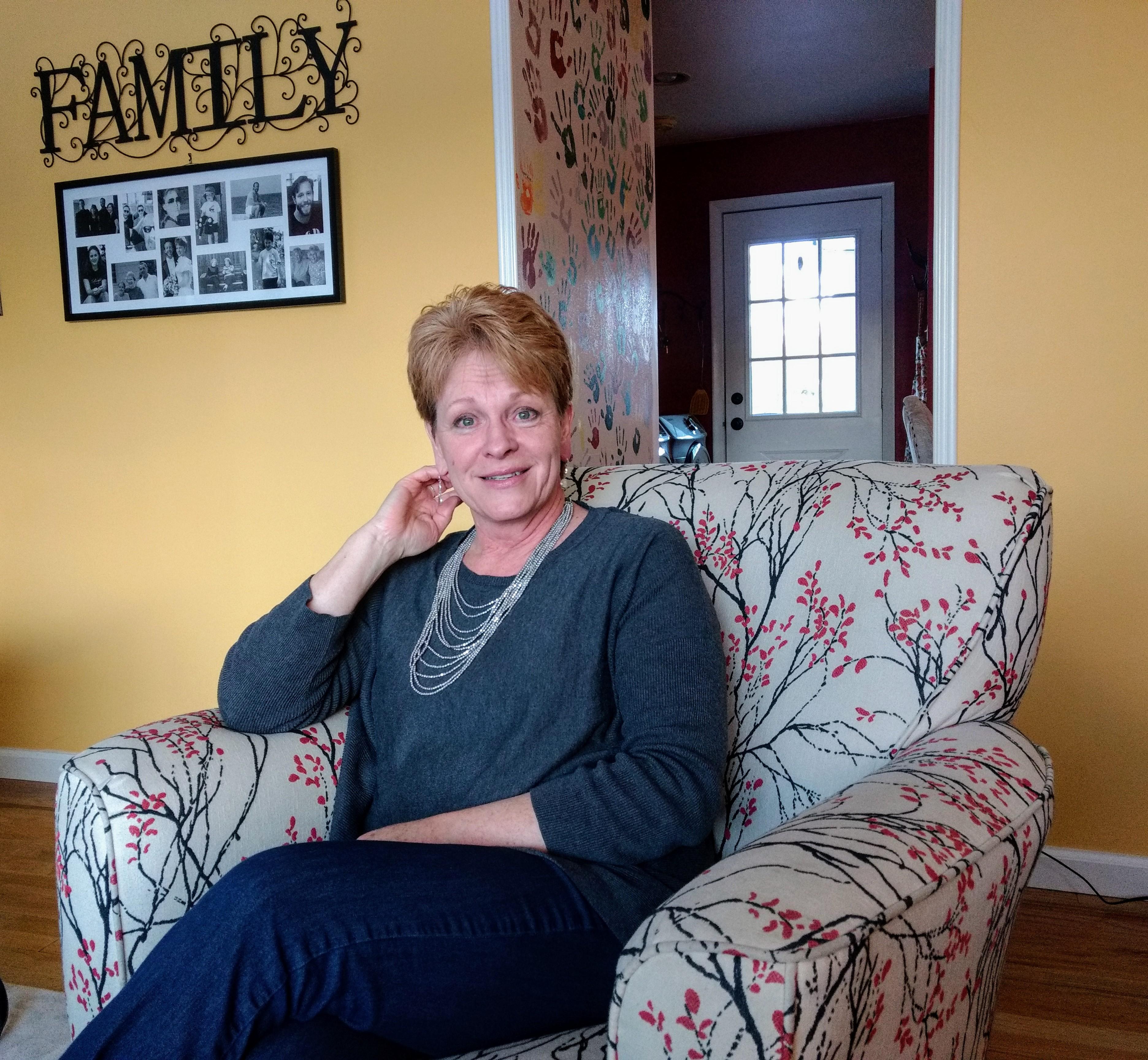
The ballot measure was spearheaded by Safe and Sound Denver, a local organization that formed to challenge the amendment in 2020. The group submitted a referendum petition with 13,642 valid signatures to the city in May, getting the repeal placed on the ballot.
Safe and Sound members have argued that city officials did not actively engage with community members regarding the amendment, and they questioned why an amendment with several factors passed during the height of the pandemic.
"This is a massive change," Florence Sebern, a member of Safe and Sound, told Denverite. "It impacts every single resident in the city ... 200 pages [of legislation] during a COVID lock down with continuing restrictions and conditions. It's not good governance. You don't do it that way."
Sebern said the city should have presented the amendment as two separate pieces -- the rule on unrelated adults in a single-family home and the placement of residential care facilities -- "so that we have a chance to first and foremost understand it and then have a reasonable discussion."
Safe and Sound has also voiced concerns that the amendment negatively impacts the quality of life in neighborhoods and their overall character. The group has said an increase in roommates and residential care facilities will overpopulate areas and increase trash and parking difficulties.
"There are different neighborhoods all across the city," Sebern said. "They're diverse. They're unique. They have their own characters. But speaking for myself in my own neighborhood, a working class neighborhood... the properties are small. The whole roommate thing? In my 1,000 square foot house? Five adults in one bathroom and three bedrooms? I don't understand why that number is not proportionate. Why not to the size of the home? Because that's going to wreck some havoc in my neighborhood. Maybe in some other neighborhoods, not so much. Well then that's their call to make but zoning is supposed to protect everyone."
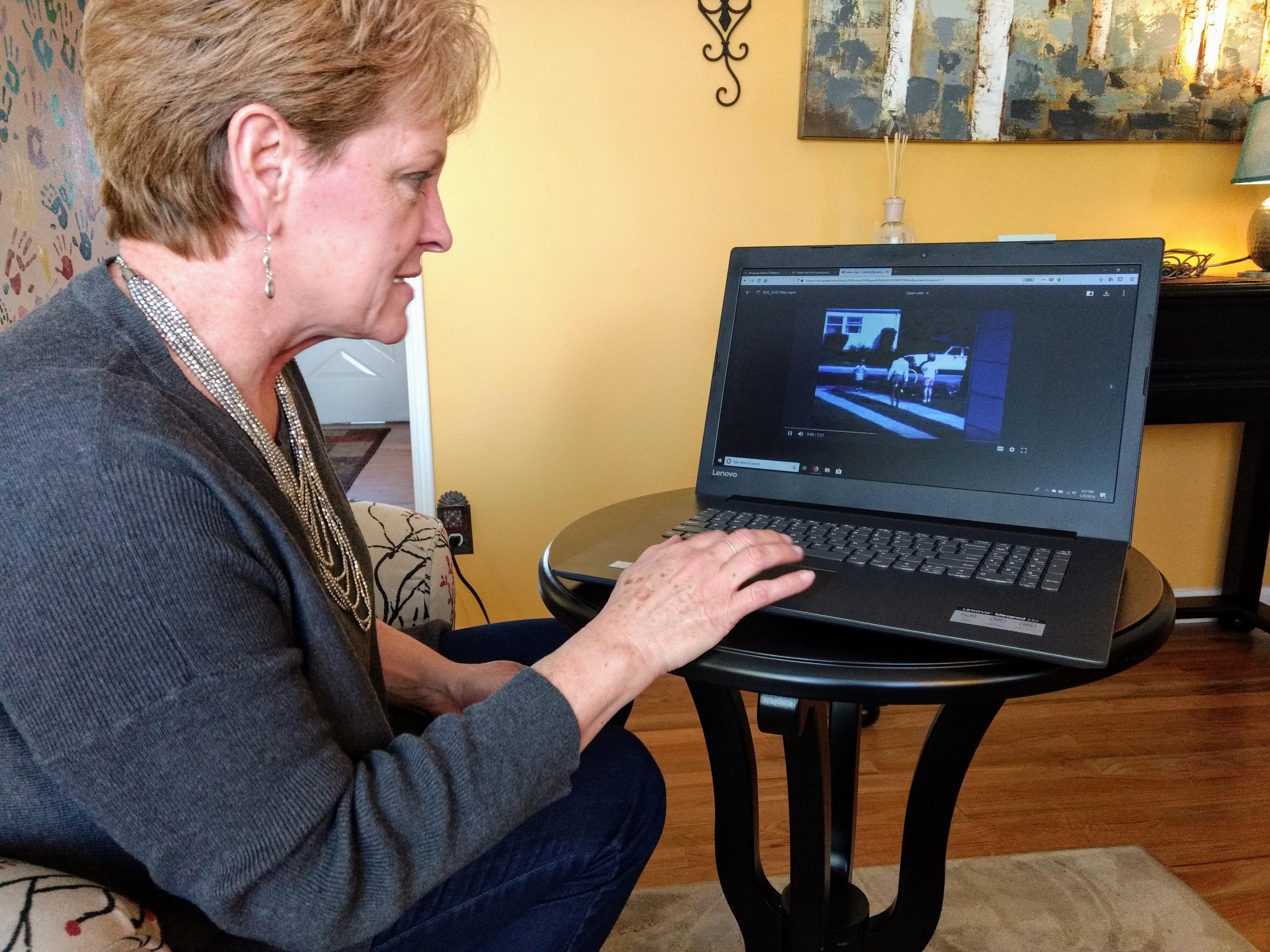
According to 2F opponents, repealing the amendment doesn't protect everyone because the old zoning code didn't protect everyone. According to At-Large Denver City Councilwoman Robin Kniech, the old zoning law was outdated and started in the 1950s after redlining ended.
Kniech spearheaded the initial amendment change and is currently part of Keep Denver Housed, a coalition of organizations, elected officials and community leaders who are against 2F.
"As redlining ended in our city, the rise of single-family zoning restrictions began," Kniech said. "This wasn't about not allowing unrelated people to live anywhere, it was about allowing unrelated people to only live in one quarter of the city. It was about certain people who needed to share housing living in one place and people who didn't need to share housing should live in another place."
Under the previous rules, up to four unrelated adults could live together in a dwelling unit in a multi-unit structure, meaning up to four unrelated people could share an apartment in an apartment building. The updated rules now allow up to five unrelated adults to live in an apartment.
However, all residents must share a lease for the entire unit, not individual rooms. Community Planning and Development said rent-by-the-room scenarios are considered rooming and boarding houses, which are "not permitted in single-unit, two-unit and rowhome zone districts."
CPD said single-family homes can be turned into multi-family homes via permitting, but only in specific zone districts that already allow multiple units and under very rare circumstances. Usually the units in multi-family houses are rentals and they are smaller than single-family homes. According to CPD, Black and brown neighborhoods account for 72 percent of Denver households with 5 or more adults.
"Across the street from our other house in Cap Hill was a single-family house that was divided into six units," Bindel said. "Six mailboxes. They could have up to 24 people in that house legally under Denver law. Why are people so upset about single-family houses and five people?"
Ultimately, Sebern and Paige Burkeholder, another member of Safe and Sound, said the goal of the repeal is to allow Denverites a chance to discuss the amendment and "properly understand the impact."

"I think we've enlightened a lot of people," Burkeholder said. "We've helped people look at things differently and dig into the details... I think what's also going to be interesting is that the mayor and the entire city council are up for reelection in 2023. I think the outcome of this amendment...as well as that vote in 2023 is really going to determine the direction of Denver."
"We're not anti-change," Sebern said. "Not anti-development. We're not anti helping people to rehabilitate their lives and reintegrate into society. Never have been, never said it that way. We want the opportunity to participate in our own governance. We want the opportunity to weigh in."
Huelsman and Teter hope people affected by the amendment and possible appeal also weigh in and head out to vote on Tuesday. For them, it's the only direction Denver should head toward in the ongoing issue of housing.
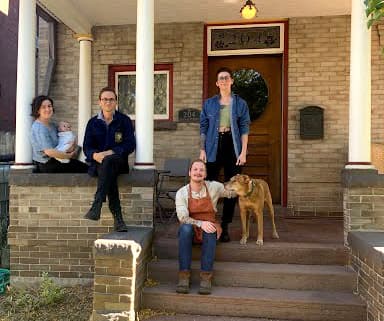
"Talk to any millennial who makes less than $100,000 a year and say how do you afford to live here? Roommates," Huelsman said. "It's super straightforward. The folks who are actually struggling are younger folks and lower income folks who are needing to get two, three, four roommates to literally exist in this city."
Teter added, "My question for people voting 'yes' and saying they don't want a bunch of people in the neighborhood is: Why would you not want me to be your neighbor? We're great. Our house is great. Our family is great."

